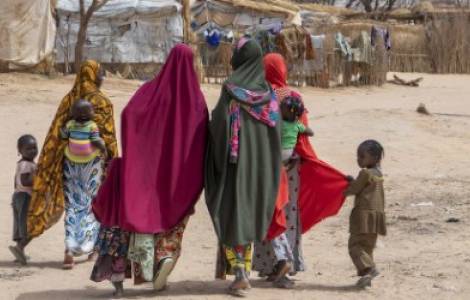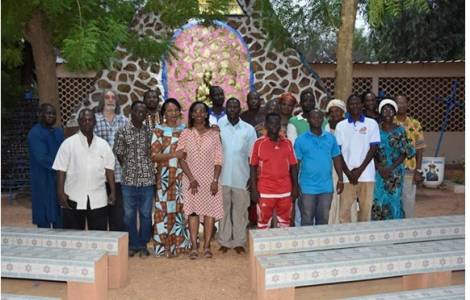
By Mauro Armanino
Niamey (Agenzia Fides) - Henri lives in Niamey and is now twice as old as the day he left his homeland, the Democratic Republic of Congo, one of the most unfortunately rich regions of his country. The "geological scandal" of the Democratic Republic of Congo, which has the best deposits of "rare earths" for electronics and information technology, has allowed the continuation of wars directed from outside, at a high price at home. Coalitions of various African countries and the support in the form of money, weapons and logistics from the major powers with interests on the ground have led in recent years to a long war that has no end.
Like many others, Henri left his homeland at the age of 22 and has not returned since. He is not recognized by the United Nations High Commissioner for Refugees (UNHCR) and has ceased to exist legally. He is not a "refugee", he is not a "migrant", he is not a "displaced person", he has no job, no family, no identity and all that remains is what he insists on calling a future. He has witnessed the massacre of those who fled martyred Rwanda and, over time, the emergence and development of armed groups paid by foreign companies and powers "hungry" for mineral resources. To reach Benin, where he lived as a refugee for 11 years, he had traveled through Central Africa, Cameroon and Nigeria. Finally, for political reasons, the authorities considered that his status was no longer tenable and Henri left for Ghana, believing he would have better luck with the High Commission for Refugees in Geneva (Switzerland). He decided to take his destiny into his own hands and try to cross the sea that looks with fear at those who dare to challenge its secret. He thus leaves Ghana and, after a long journey, reaches Algeria, one of the coasts of the Mediterranean. He is arrested, detained and finally deported to the border with Niger. In 2019, he is welcomed by the International Organization for Migration. Not wanting to return to his home region, where war is still raging, he is entrusted to the High Commission for Refugees for humanitarian reasons. He spends another four years as an asylum seeker in a refugee camp called Hamdallay, not far from Niamey, only to finally see his asylum application definitively rejected.
The authorities offer him a modest sum as "compensation" and Henri finds a room to rent in one of the new neighborhoods on the outskirts of the capital Niamey 2000. Henri's life in vain search of a country where he can find asylum because of the ongoing war in his homeland appears as a metaphor for our times. Both he and his country and millions of people celebrate an endless exile in the complicit and deafening silence of the world that counts. (Agenzia Fides, 4/6/2024)

MA